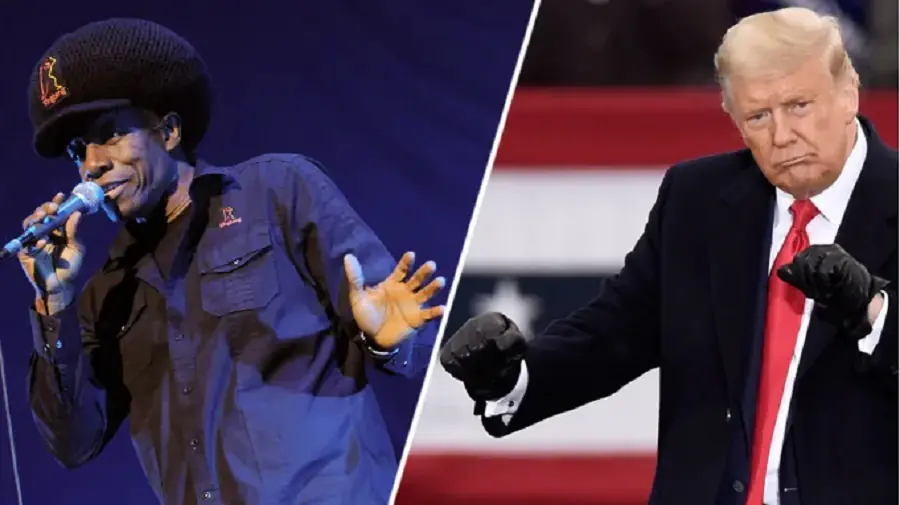In a landmark decision, musician Eddy Grant has won a copyright lawsuit against former President Donald Trump. The case revolved around the unauthorized use of Grant’s 1983 hit song “Electric Avenue” in a 2020 campaign video. The ruling underscores the importance of intellectual property rights, even in politically charged contexts.
Key Takeaways
- Eddy Grant wins copyright lawsuit against Donald Trump.
- The case involved the unauthorized use of the song “Electric Avenue” in a 2020 campaign video.
- The court rejected Trump’s fair use defense.
- Damages are yet to be determined.
Background of the Case
The lawsuit was initiated in 2020 when Eddy Grant discovered that his song “Electric Avenue” was used in a campaign video posted on Donald Trump’s Twitter account. The video featured a Trump-Pence train speeding ahead of a handcar operated by an animated Joe Biden, with “Electric Avenue” playing in the background. Despite a cease-and-desist letter from Grant, the video remained online, amassing millions of views before the lawsuit was filed.
Court’s Ruling
Judge John G. Koeltl of the Southern District of New York delivered the ruling, granting summary judgment in favor of Grant. The court found Trump and his 2020 presidential campaign liable for copyright infringement. The judge rejected Trump’s arguments that the song was not validly registered and that its use constituted fair use.
No Fair Use
The court ruled that the use of “Electric Avenue” in the video did not qualify as fair use. Judge Koeltl noted that the video did not alter or comment on the song but used it solely for its entertainment value in promoting the Trump campaign. The judge emphasized that the song was “immediately recognizable” and unedited, which weighed heavily against fair use.
Factors Considered
- Purpose and Character of the Use: The court found that the video was not transformative and used the song for its entertainment value, not for political commentary.
- Nature of the Copyrighted Work: “Electric Avenue” is a creative work, which places it at the core of copyright protection.
- Amount and Substantiality of the Use: The song played for more than two-thirds of the video, making it a significant portion of the work.
- Effect on the Market: The court ruled that widespread, uncompensated use of Grant’s music would undermine his ability to license the song.
Implications and Next Steps
With liability established, the case will now focus on determining damages. Grant has asked for $300,000 in damages and legal fees. The ruling sends a strong message to political campaigns about the consequences of infringing on intellectual property rights. It also affirms artists’ rights to control how their creative works are used, even in the context of election campaigns.




